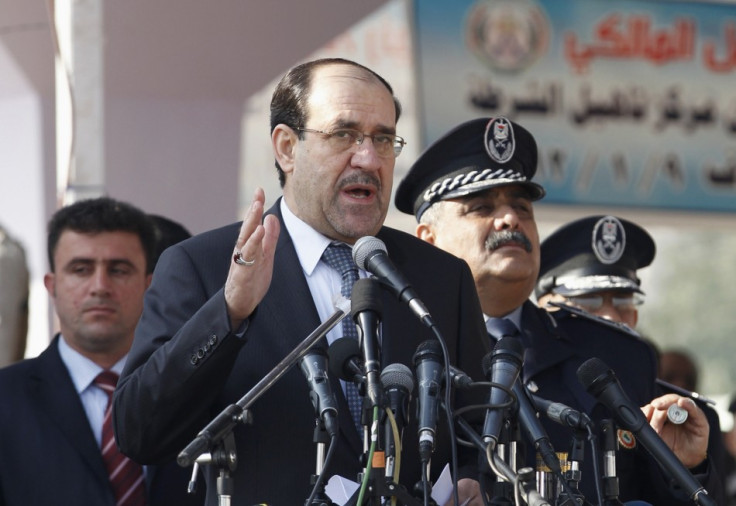Why Money is the Great Divider in Iraq, Not Religion

Personality attacks, sectarian fervour and escalating violence - election campaigning is under way in Iraq.
The parliamentary polls on April 30 will see incumbent leader Nouri Maliki gunning for a third term as Prime Minister.
To describe the oil-rich country as divided has almost become a cliché. The provinces are in revolt, demanding a greater share of the country's oil revenues. A third of the country's regions are calling for more autonomy from Baghdad. The restive province of Anbar has spun out of government control. But while religious sectarianism may be fuelling the country's problems, beneath the headlines, Iraq's divisions are all about money and power.
First elected in 2006, Maliki has established an ever-tightening grip on power. When he took office nearly a decade ago, the country was fragmenting and he was perceived as a weak leader. Deadly violence had gripped most of the country's provinces and the economy was floundering.
It was only after the massive American surge in troops in 2008 and the triumph over regional militias that Maliki embarked on his mission to recentralise power to Baghdad.
Following Saddam Hussein's ouster in 2003, the US-led forces virtually gutted the entire Iraqi state system. While some of this damage had been reversed Maliki faced a massive challenge to bring a range of disparate institutions under his control.
To the surprise of many Iraq watchers, he did this incredibly swiftly and brought the country's top bank, courts and security services under his control, as well as state media and the treasury.
Yet, as well as being one of his most notable achievements to date, the centralisation of power and money is precisely what's behind Iraq's current malaise.
The provinces are resentful. As many as a third of Iraq's provinces, including the eastern province of Anbar, are seeking the kind of autonomous arrangement with Baghdad that the Kurdistan region has.
The case for autonomy is invariably argued along the lines that Baghdad is neglecting the regions economically and marginalising Sunni groups.
Under Maliki the relationship between the Baghdad and the regions has been fraught. While Iraq's provinces were granted the right to elect councils and governors in 2009, Baghdad has barely relinquished any power and only releases funds to the regions grudgingly.
Under the regional system, each province is allocated a slice of central government revenues based on its population size but the cash rarely leaves Baghdad. In fact, governors and provincial leaders have faced Baghdad obfuscation when trying to get access to state funds they're entitled to.
Maliki's refusal to relinquish funds to the provinces is hurting him and sparked the chaos that spread through Anbar province at the end of the last year and remains entrenched.
The violence in Anbar began when government forces stormed a protest camp last December. The protestors had been there for a year, disgruntled by government neglect and withholding of regional funds.
There was a violent response to the government crackdown from Sunni militants. When Maliki withdrew the army from key towns and cities in an attempt to calm the situation, the militants responded by storming strategic buildings in the major cities Falluja and Ramadi. These strategic cities are still not under government control.
Meanwhile, Iraqi Kurdistan's experiment with autonomy has been far from easy. Baghdad and Irbil have become embroiled in a bitter dispute that led to the central government refusing to pay KRG workers earlier this year.
The annual budget is yet to be passed, as the central government dispute with the Kurdish Regional government (KRG) remains unsolved. The row between Baghdad and Irbil centres on the KRG's moves to export oil to Turkey independent of central government.
Although the Kurds have offered to pump 100,000 barrels more oil through pipelines controlled by the central government, the process hasn't started and the budget remains unsigned.
Even in the most autonomous of Iraq's regions, resentment at Maliki's centralised state threatens to derail the country. While it may be religious sectarianism that grabs most of the headlines, it's the struggle for a fair share of Iraq's wealth that is really driving the country apart.
© Copyright IBTimes 2025. All rights reserved.






















